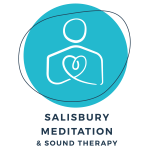Stress and anxiety result when we feel we can’t handle the pressures and adverse situations of everyday life. It’s a simple question of supply and demand of available emotional resources.
It’s not about whether the perceived stressor is valid or not—we feel a responsibility to respond to all of the pressures and demands.

Stress Management – supply & demand of your emotional resources
Do we have the space in our minds to figure out which tasks are actually essential and which are not so important? This is where mindfulness meditation for stress and anxiety, the feeling that continues after the stressors are gone, can provide relief.
How does meditation relieve stress? It gives us the space to sort out which demands on our energy, attention, and emotions are valid and which are not. Just think, if we had the ability to distinguish between the two, our experience of stress and anxiety would be much different. We feel pressure when we don’t have this space in our minds and in our lives. We experience relief when meditation gives us the space and clarity we need to organise our priorities. This is the demand side element of stress management.
The other key element is the supply side: increasing our resources. Science has shown that brain plasticity – the brain’s ability to change and adapt throughout life – is extraordinary. By using meditation techniques to train our minds, we increase our mental resources and become more capable.
As a society, we have become very conscious about how important it is to have a fit, healthy body—the gyms are full. It is just as critical to have a fit, healthy mind. Through mindfulness meditation practice, our minds can become more capable, focused and clear, enabling us to better handle stressful and demanding situations. This is how meditation for stress reduction enables us to experience a calmer life.

Stress Prevention
Mindfulness meditation is also a good baseline practice for stress prevention, so that when adverse situations occur we don’t let them get out of control.
We all experience stressful situations in life, such as the loss of a loved one, divorce or moving, all of which are considered high-stress events. Any situation of this kind, or even simply challenging situations at work demands a lot from us, so we would be wise to learn some basic ways to respond to stressful situations that cannot be avoided.
At those crucial points in our lives, meditation can help provide relief. How? By giving us a better grasp of how to work with situations, a heightened awareness of our emotions, and more space to respond. For example, when we grieve for someone, the more aware we are of everything that is going on in our minds, the better we are able to process our sadness and grief. When we’re not aware, our emotions tend to color our perception and judgment and inflate our sense of what the situation demands of us, so that it is perceived to be beyond what we think we can provide. This is the insidious cycle of stress.
This is a glimpse of how meditation reduces stress. We begin by creating the space in our minds to reduce demands by discerning what is essential. And we train our minds and increase our mental resources. Then, when stressful situations arise, our training in meditation techniques for anxiety will have provided us with the skills we need to work with our emotions. We can deal with stress in a more peaceful way, and even begin to think about others. Mindfulness meditation practice is the ideal tool for stress management!

Benefits of Meditation
Meditation can give you a sense of calm, peace and balance that can benefit both your emotional well-being and your overall health. You can also use it to relax and cope with stress by refocusing your attention on something calming. Meditation can help you learn to stay centered and keep inner peace.
And these benefits don’t end when your meditation session ends. Meditation can help carry you more calmly through your day. And meditation may help you manage symptoms of certain medical conditions.
Meditation and emotional and physical well-being
When you meditate, you may clear away the information overload that builds up every day and contributes to your stress.
The emotional and physical benefits of meditation can include:
- Gaining a new perspective on stressful situations
- Building skills to manage your stress
- Increasing self-awareness
- Focusing on the present
- Reducing negative emotions
- Increasing imagination and creativity
- Increasing patience and tolerance
- Lowering resting heart rate
- Lowering resting blood pressure
- Improving sleep quality
Meditation and illness
Meditation might also be useful if you have a medical condition, especially one that may be worsened by stress. Some research suggests that meditation may help people manage symptoms of conditions such as:
- Anxiety
- Asthma
- Cancer
- Chronic pain
- Depression
- Heart disease
- High blood pressure
- Irritable bowel syndrome
- Sleep problems
- Tension headaches
Building your meditation skills
Don’t judge your meditation skills, which may only increase your stress.
It takes practice.
Keep in mind, for instance, that it’s common for your mind to wander during meditation, no matter how long you’ve been practicing. If you’re meditating to calm your mind and your attention wanders, slowly return to the object, sensation or movement you’re focusing on.
Experiment, and you’ll likely find out what types of meditation work best for you and what you enjoy doing. Adapt meditation to your needs at the moment. Remember, there’s no right way or wrong way.

References: https://mindworks.


Recent Comments